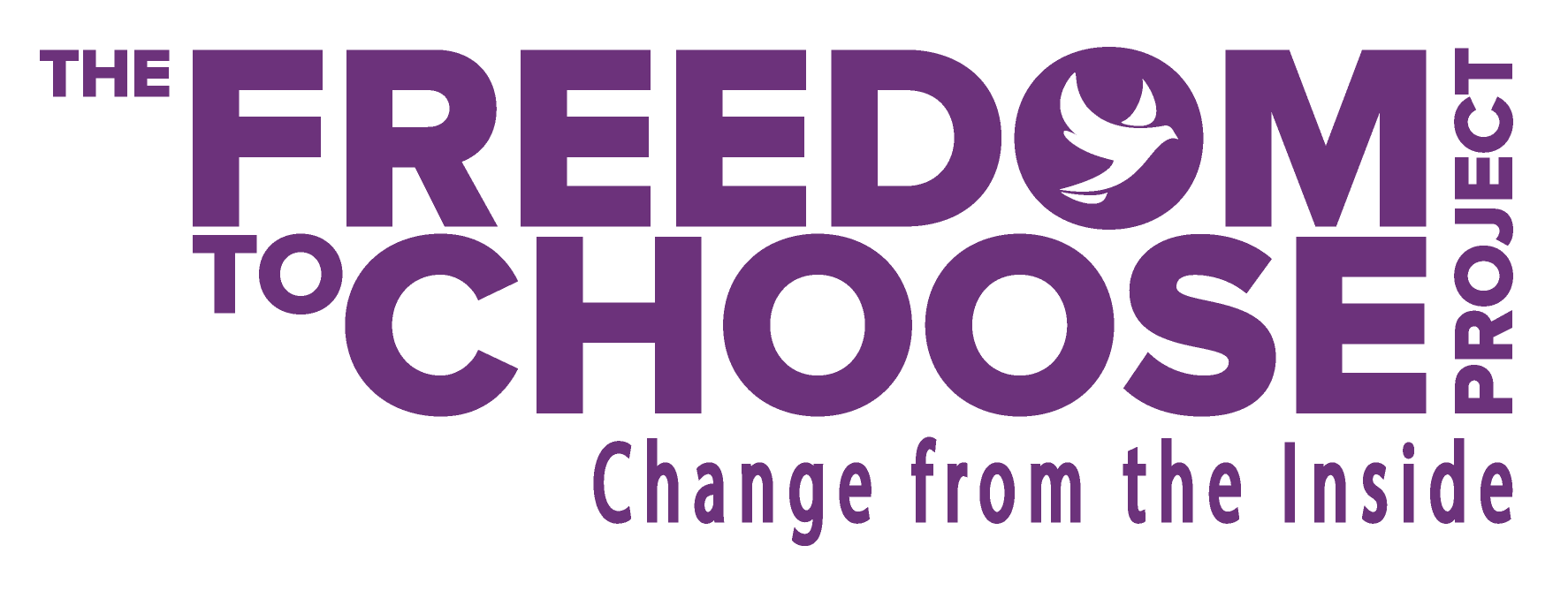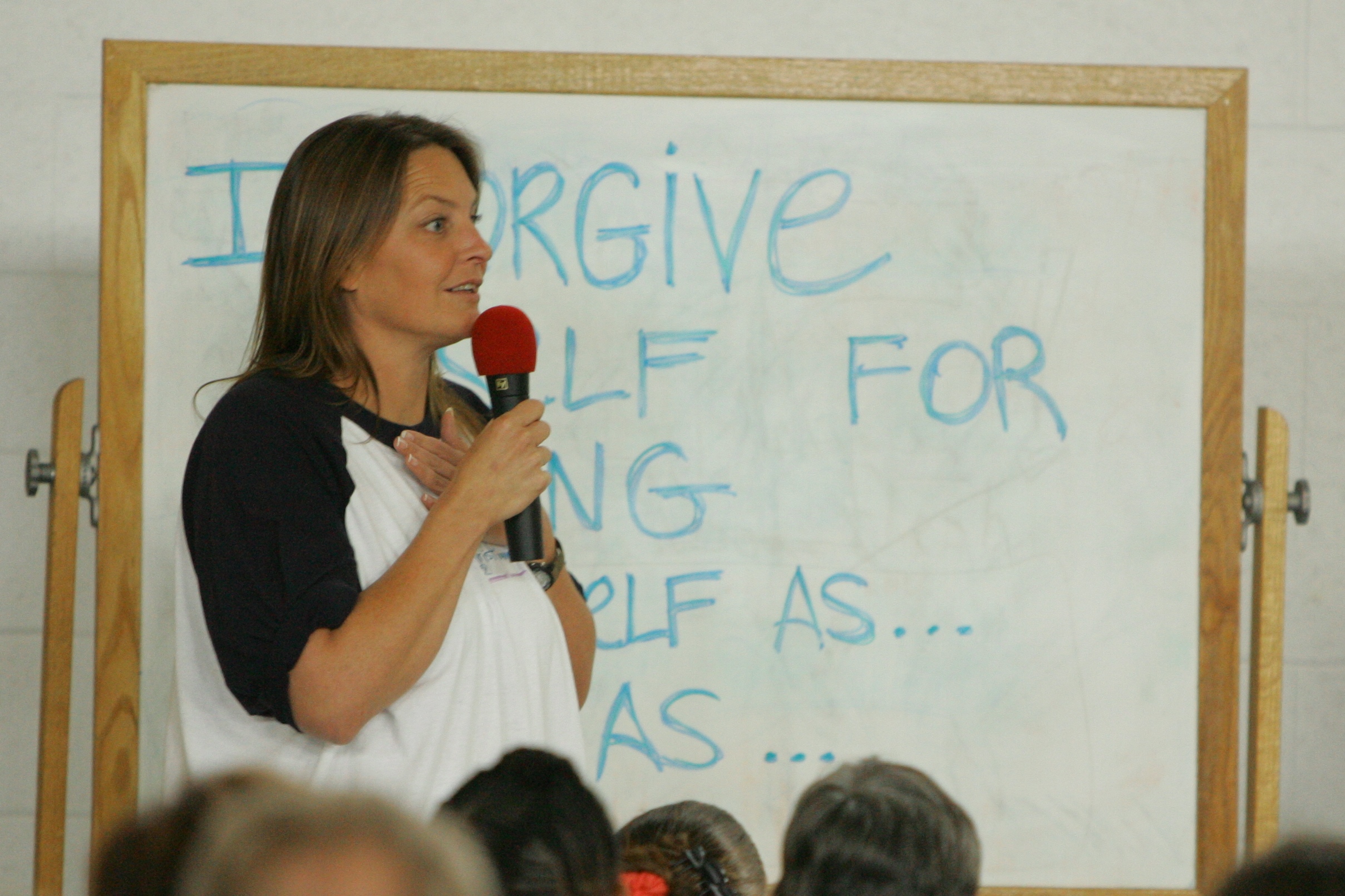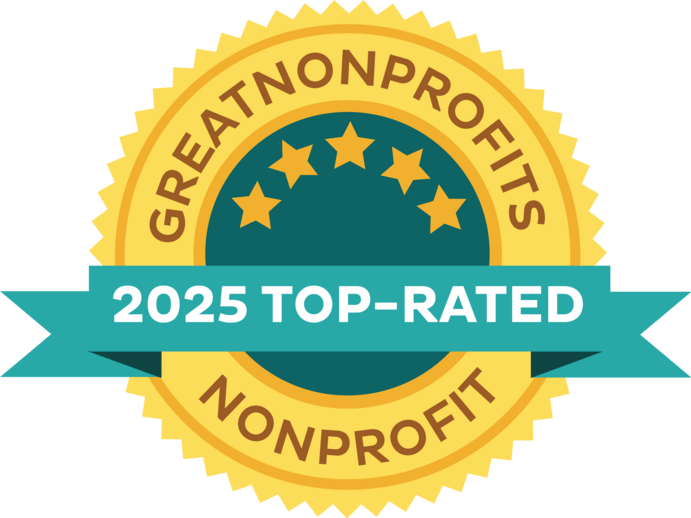“This could be me, my sister, my mother,” I remember thinking the first time I sat across from a woman at Valley State Prison for Women at the first Freedom to Choose workshop in 2004. After eagerly raising my hand to be a part of the volunteer team, I had no idea what to expect when I walked into a prison. But I do know I didn’t expect I would so completely relate to the women I came to know over that first weekend.
Like most people, I had my own ideas of what “those people” in prison were like, and it certainly wasn’t like me. I’d never been arrested, no family members served time in prison and I didn’t hang around criminals. We were worlds apart. Or were we?
I heard many stories about their lives and what they had endured – unimaginable abuse, feelings of no self-worth, homelessness, poverty and more – and how, because of their choices, they found themselves in prison, many with life sentences. And few (if any) skills to help them cope with life, create good relationships or make better choices. As I listened, I thought I could never have endured what so many of the women had experienced.
Volunteering over the past 11 years and several thousand participants, I’ve seen and heard about the positive impact that FTC has had in the lives of both women and men. I’ve heard about changes that people have made to improve their lives and relationships in and out of prison. I’ve heard how the atmosphere in the prison continues to improve as participants return time and again to learn more skills. I’ve made friends, witnessed profound growth, and seen improved levels of self-confidence and self-respect in the men and women who attend FTC workshops.
I’ve also seen many people be released and successfully create new lives in the “free world.” Among them:
- Kristianne Clifford, who served 18 years, is now a program assistant for FTC. While in prison, she created & facilitated a variety of self-help and recovery programs, completed the first Female Offender Certification Program and earned her CAADAC drug and alcohol counselor certification. Kristianne is planning to begin a master’s degree program this fall. She is also featured in the award-winning documentary.
- Kelvin Williams, who was released last year, said that the skills he learned gave him the ability to open up and express himself more freely and know that it was okay to share the deepest part of himself. Upon his release, Kelvin founded A’isha’s House, a nonprofit foundation to create homeless shelters for homeless and at risk youth, and transitional housing for parolees. To learn more about Kelvin, A’isha House and Kelvin’s upcoming fundraiser Sat, March 21, 2015, visit his website: aishaacademy23.org.
I have learned more than I ever imagined possible about opening my own heart, trusting, human kindness, the power of forgiveness, taking responsibility, freedom from judgment and the depth and power of love.
Worlds apart? I don’t think so. We make different choices, go different directions in life, but we are all the same. We all want to be heard and to feel that we matter. That we are worthy and that we are loved.
— Nancy Staack, FTC Volunteer
“It’s impossible,” said Pride. “It’s pointless,” said Reason. “Give it a try,” whispered the Heart.








